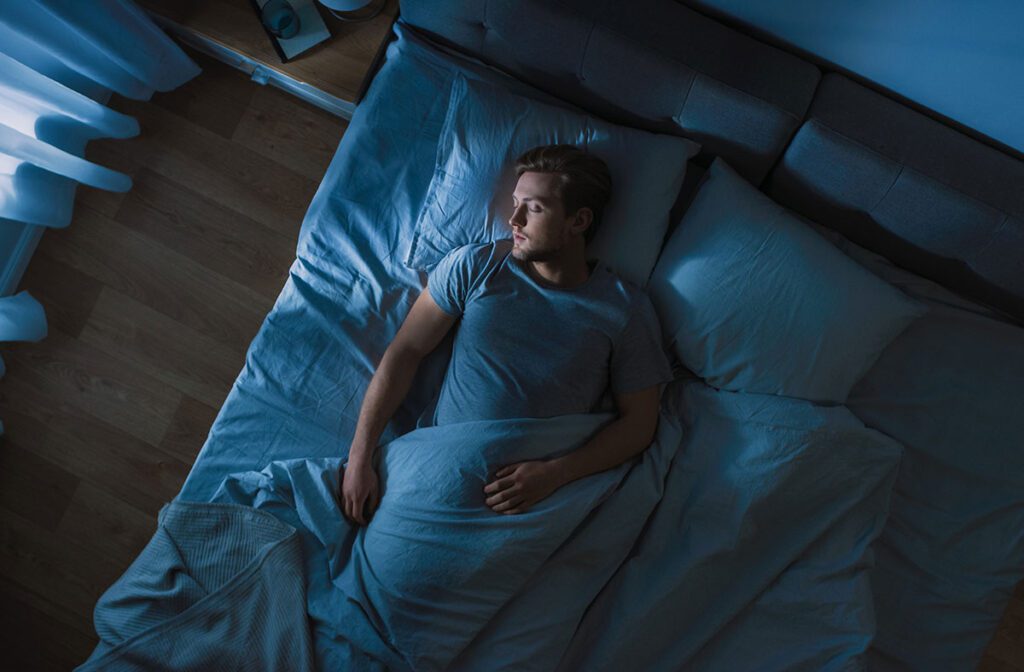Post-traumatic stress disorder (PTSD) is a mental health disorder triggered by experiencing a frightening, terrifying, and/or traumatic event. People living with PTSD often experience flashbacks and anxiety that can sometimes make it difficult to get through daily activities. As you might imagine, many veterans experience PTSD and its lingering after-effects, such as insomnia. PTSD may make it harder to fall asleep, stay asleep, or experience restful sleep.
Psychiatrist.com recently published a brief report on a study from the Journal of Clinical Psychiatry that explored pimavanserin as a potential therapeutic option for veterans with PTSD who suffer from severe insomnia. Pimavanserin, marketed under the brand name Nuplazid, is currently approved for the treatment of Parkinson’s disease psychosis. This first-in-class 5-HT2A partial agonist/antagonist antipsychotic medication aims to reduce or stop hallucinations and delusions.
Researchers believed that pimavanserin could improve deep sleep while reducing daytime sleepiness. They evaluated this belief in a clinical study that involved six veterans living with insomnia and PTSD. The veterans received 34mg pimavanserin at bedtime for a six-week period.
Following treatment, the veterans experienced better sleep quality and saw reductions in their PTSD. While there were some side effects—most notably some mild sleepiness—this treatment was safe and well-tolerated. 100% of the participants asked to continue using pimavanserin after the study was over, suggesting that it could significantly change the treatment field for people with insomnia and PTSD.
About Insomnia
Insomnia is a sleep disorder that means you either aren’t sleeping enough, aren’t sleeping well, or aren’t able to fall asleep or stay asleep. This can make you feel more tired during the day and inhibit your day-to-day living. Insomnia may be short-term (lasting for a few days to a few weeks) or long-term (occurring 3+ nights each week for 3+ months). If you have insomnia, you will not feel well-rested. You may feel sleepy during the day, as well as increasingly depressed, anxious, or irritable. For some people, insomnia also causes difficulties with attention, focus, and memory. Chronic insomnia increases the risk of diabetes, cancer, high blood pressure, and coronary heart disease.
Treatment includes mental health support, certain medications such as benzodiazepines, and practicing good sleep habits such as staying active, avoiding or limiting naps, avoiding or limiting caffeine and alcohol, and only using your bedroom for sleep or sexual activity.



